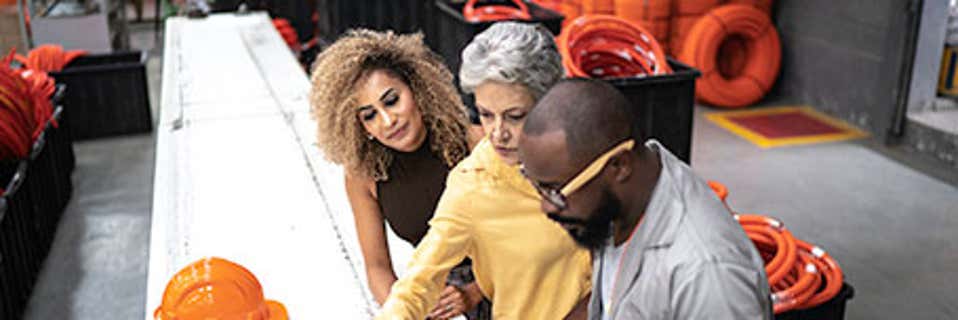ITIL 4 CDS: bridging the “frameworks gap”

- Blog
- Collaboration
- Communication
October 23, 2020 |
3 min read
- Blog
- Collaboration
- Communication
The ITIL 4: Create, Deliver and Support (CDS) module is focused on the central engine of ITIL’s service value chain.
Summarising a recent panel webinar involving Akshay Anand (Axelos ITIL Ambassador), Barclay Rae (ITIL 4 CDS lead editor and consultant), Jon Stevens-Hall (ITIL 4 contributing author and product manager, BMC Software) and Rosemary Gurney (ITIL 4 author and ITSM training consultant at Global Knowledge UK) this blog post examines how CDS supports the “beating heart of any service organization”.
Barclay Rae (BR): CDS treats creation, delivery and support as integrated – not separate – activities and captures the wider sense of working in service management.
It also calls out a number of things needed to be successful: yes, you need to understand value streams and practices but also managing people, how to build teams, communicating with customers and understanding feedback.
Rosemary Gurney (RG): This module gave me an opportunity to express passion about people; how we engage with and develop them and how to improve and change culture. We should be more customer-oriented and it doesn’t matter who does it as long as somebody does.
Jon Stevens-Hall (JSH): ITIL 4 has brought service management guidance into the modern era. Where DevOps has more autonomy, experimentation and comes up with better, measurable outcomes, it’s also important to see that service management has a lot to offer the DevOps community. With value stream thinking, ITIL 4 is taking ITIL principles to a DevOps world and finding ways to deliver value. And in Agile and DevOps culture if they don’t see value, they won’t do it.
Culture, collaboration and communication
RG: The most interesting [part of CDS] for service managers is about organization culture and how a well-performing team looks versus a toxic team. It’s about having diversity in roles, communication, relationship management, leadership and bringing together different experience and skills rather than cloning people.
It needs robust recruitment but with a diverse approach to create flexible culture, as a team is greater than the sum of its parts.
JSH: What do companies mean by “cultural transformation” and how do they do it? You can’t force it on people; it has to be something they want to do and see the benefits to them and the customer.
It’s about people’s attitudes and behaviours, getting people to understand why being more service oriented is good for the customer and the organization. If you collaborate more, behaviour shifts.
Value stream mapping for service improvement
BR: I’ve been doing a lot of work with companies on customer journey and value stream mapping. While it’s a leap for some, it’s getting them to “play the customer”, and map internal processes against that. This gives them different perspectives and varied ways to make services work better.
JSH: Service management is in a good position to have a “top of the skyscraper view” and understanding all the things that knit together, rather than DevOps just focused on an individual tech stack. ITIL 4 has allowed this discussion.
Service desk – a golden opportunity
RG: Sometimes the service desk feels isolated; instead, organizations need to build up value across all teams through culture and without silos. The service desk is worth its weight in gold in turning customers around; it works wonders for customer perception rather than the old-fashioned view that the service desk sits in the basement, drinking coffee and eating biscuits.
CDS – moving service management into a new world
BR: CDS walks you down the path to more modern ways of working, telling people “here’s the stuff you know and here’s how you move it forward to the new world”.
It’s about empowering people to be creative and innovative. Also, good management is about understanding each person, their drivers, how they respond and the best approach to take with them.
In this way, we are generally moving towards a more fluid and less autocratic way of working.
Want to watch the full session?watch on demand
What's next for you?
Start your ITIL 4 Foundation journey
Ready to take your next step with ITIL 4 CDS?
Want to learn more about the ITIL 4 Managing Professional modules?